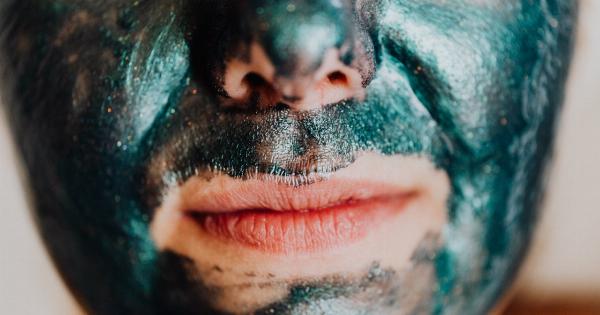Our skin is the largest organ in our body and acts as a protective barrier against external elements. It plays a crucial role in our overall health and appearance.
While genetics and age certainly have an impact on our skin’s condition, our lifestyle choices also play a significant role. In this article, we will explore how certain lifestyle choices can affect our skin’s appearance and what steps we can take to maintain a healthy and radiant complexion.
Diet and Skin Health
What we eat has a direct impact on our skin’s appearance. Unhealthy eating habits can lead to various skin issues, such as acne, dullness, and premature aging.
A diet high in processed foods, sugary snacks, and unhealthy fats can increase the production of sebum (oil) in our skin, leading to clogged pores and breakouts.
On the other hand, a diet rich in fruits, vegetables, whole grains, and lean proteins can provide our skin with essential nutrients, vitamins, and antioxidants.
These nutrients help in maintaining the elasticity, hydration, and overall health of our skin, promoting a youthful and glowing complexion.
Hydration and Skin
Proper hydration is crucial for maintaining healthy skin. When we don’t drink enough water, our skin becomes dehydrated, leading to dryness, flakiness, and a dull complexion.
Inadequate hydration can also exacerbate skin conditions like eczema and psoriasis.
Drinking an adequate amount of water each day ensures that our skin stays hydrated and helps flush out toxins from our body, promoting a clear and radiant complexion.
Additionally, using hydrating skincare products and incorporating moisturizers into our daily routine can also help in keeping our skin supple and moisturized.
Sun Exposure and Skin Damage
Excessive sun exposure without proper protection can lead to various skin issues, including sunburns, wrinkles, fine lines, hyperpigmentation, and even skin cancer.
The ultraviolet (UV) rays emitted by the sun penetrate the skin and damage its underlying structure, breaking down collagen and elastin fibers, which are responsible for keeping our skin firm and elastic.
To protect our skin from sun damage, it is essential to apply sunscreen with a broad-spectrum SPF of 30 or higher, wear protective clothing, and seek shade during peak sun hours.
Limiting sun exposure not only protects our skin from immediate damage but also prevents long-term effects of sun exposure, such as premature aging.
Smoking and Skin Aging
Smoking is one of the most detrimental lifestyle choices for our skin’s health and appearance. It not only affects our internal organs but also leads to premature aging and various skin problems.
Smoking reduces the blood flow to our skin, depriving it of essential nutrients and oxygen. This results in a dull complexion, uneven skin tone, and an increased risk of wrinkles and fine lines.
Moreover, smoking damages collagen and elastin fibers, making the skin less elastic and prone to sagging. It also narrows blood vessels, causing a decrease in moisture and depriving the skin of the nourishment it needs to stay healthy.
Quitting smoking can reverse some of the damage to the skin, leading to improved skin tone, reduced wrinkles, and a healthier complexion overall.
Stress and Skin
Chronic stress can have a profound impact on our overall health, including our skin’s appearance. When we are stressed, our bodies release cortisol, a hormone that triggers inflammation in the body.
This inflammation can manifest on the skin in the form of acne breakouts, rashes, and other skin conditions.
Additionally, stress can disrupt our sleep patterns, leading to dark circles, puffy eyes, and a tired complexion. It can also affect our skin’s barrier function, making it more prone to irritation and slower in repairing itself.
Managing stress through relaxation techniques, exercise, and self-care can help in maintaining a healthy and clear complexion. Taking time to unwind and prioritize mental well-being can positively impact our skin’s appearance.
Sleep Quality and Skin
Sleep is the time when our body goes into repair mode, including our skin cells. Getting an adequate amount of quality sleep is essential for the rejuvenation and recovery of our skin.
When we don’t get enough sleep or have poor sleep quality, it can lead to several skin issues.
Lack of sleep can cause increased inflammation in the body, leading to a dull and sallow complexion. It can also affect the skin’s moisture levels, resulting in dryness and an impaired skin barrier function.
Establishing a regular sleep routine, creating a sleep-friendly environment, and practicing good sleep hygiene can help in getting a restful night’s sleep, promoting healthy and vibrant skin.
Exercise and Skin Health
Regular exercise has numerous benefits for our overall health, and it also plays a role in our skin’s appearance. When we engage in physical activity, our blood circulation increases, delivering oxygen and essential nutrients to the skin cells.
This improved blood flow gives the skin a natural, radiant glow.
Exercise also promotes the production of collagen, the protein that gives our skin its structure and elasticity. This can help in reducing the appearance of wrinkles and fine lines, giving our skin a more youthful appearance.
However, it is important to take care of our skin during and after exercise. Wearing breathable clothing, removing makeup before workouts, and cleansing the skin afterward can help prevent clogged pores and breakouts.
Alcohol and Skin
Excessive alcohol consumption can have negative effects on our skin’s appearance. Alcohol is a diuretic, which means it dehydrates our body, including our skin. This can lead to dryness, flakiness, and a dull complexion.
Moreover, alcohol causes blood vessels to dilate, leading to redness and flushing of the skin. Over time, this can contribute to the development of broken capillaries and a ruddy complexion.
Moderate alcohol consumption and staying hydrated while drinking can help minimize the negative impact on the skin. However, it is advisable to limit alcohol intake to maintain skin health and radiance.
Skin Cleansing and Care Routine
Establishing a proper skincare routine is essential for maintaining healthy skin. Cleansing the skin twice a day helps to remove dirt, oil, and impurities that can clog pores and lead to breakouts.
Choosing a cleanser suitable for your skin type is crucial to avoid stripping the skin of its natural oils or causing irritation.
After cleansing, it’s important to use toners, serums, and moisturizers suitable for your skin type to provide hydration, nourishment, and protection.
Additionally, incorporating regular exfoliation and using face masks appropriate for your skin’s needs can help in promoting a clearer and more radiant complexion.
It’s important to remember that everyone’s skin is unique, and finding the right skincare products might require some trial and error.
Consulting with a dermatologist can help determine the best skincare routine for individual skin concerns.
Conclusion
Your lifestyle choices have a significant impact on your skin’s appearance.
By adopting a healthy diet, staying hydrated, protecting your skin from sun damage, avoiding smoking, managing stress, prioritizing sleep, exercising regularly, and taking care of your skin with a proper skincare routine, you can improve your skin’s health and maintain a youthful and radiant complexion. Remember, consistency is key when it comes to skincare, and investing time in self-care can yield long-lasting results.





























